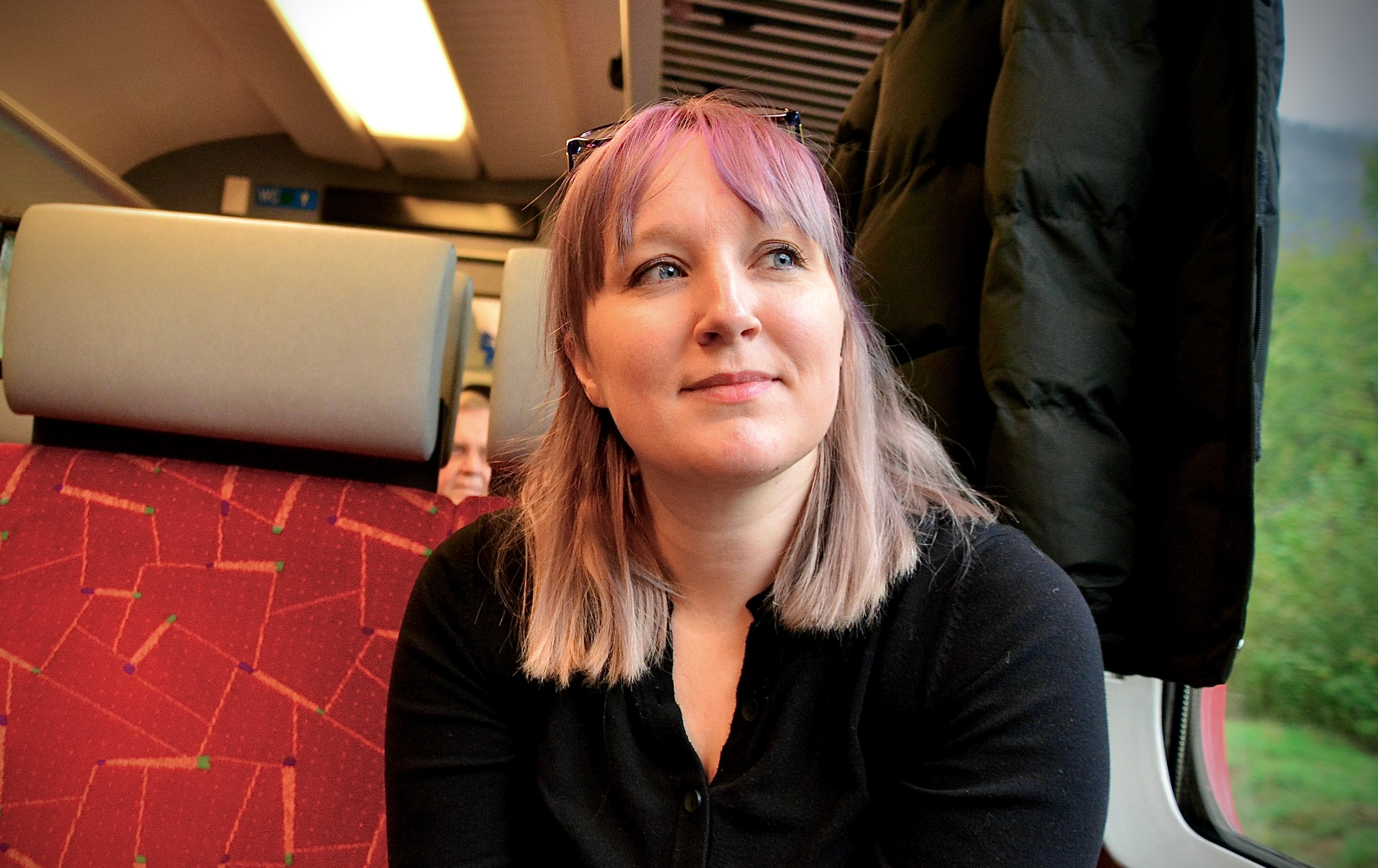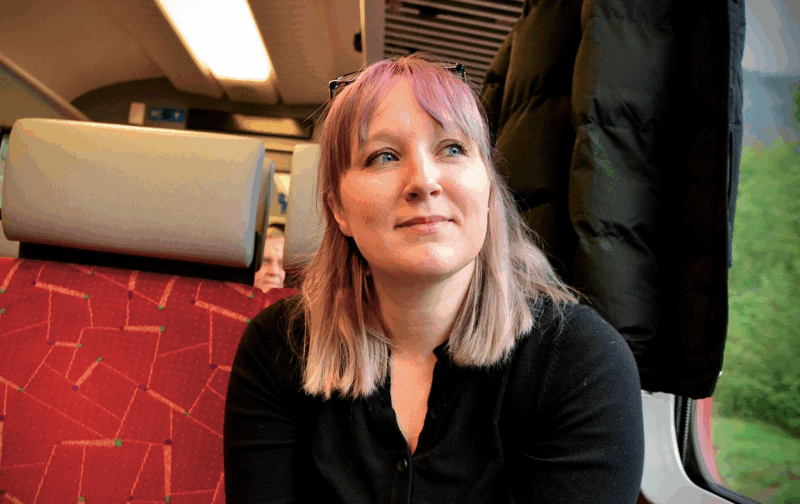Ruth Gregory, Senior Design Co-ordinator and lead of SYSTRA Ltd’s ‘Parents of Neurodivergent Children / Adults’ Employee Resource Group (ERG), provides her insights into the importance of workplaces providing spaces in which colleagues with caring responsibilities are fully supported and heard.
The unseen shift: Understanding and supporting our carer colleagues
Take a moment to picture the life of a full-time employee and a parent. Now, add in another full-time job – one that operates 24/7, has no official breaks and requires the expertise of a nurse, therapist, advocate and financial planner, often without any formal training.
This is the reality for carer colleagues.
A carer is an individual who provides substantial, regular care and support to a child, young person or adult relative who has a physical disability, intellectual or neurodevelopmental disability (including neurodivergence such as autism, ADHD, PDA and dyspraxia), long-term illness, mental health condition, or addiction.
More than parenting
Whilst all parents balance a lot, parent carers often face additional complexity above typical parenting that goes unseen. The sheer volume of ‘extra tasks’ they manage on top of a full-time job can feel overwhelming.
Care duties
Providing hands-on assistance with feeding, mobility, hygiene, behavioural support, emotional regulation, crisis management, specialist knowledge to support, sourcing and giving medication, finding specific clothing / food / equipment, and sleeping. This can be physically demanding and severely disrupt sleep.

No ‘sick days’
It’s a challenge to find external help for illness or holidays as carers will need to find specialist placements or respite, which are hard to come across, and often have different levels of barriers such as funding, social care support, sourcing highly qualified individuals and extra settling in time. This often means an increased care load for parents.
For a parent carer, ‘downtime’ is often just another task like updating medical files, researching new equipment, or preparing for the next appointment.
Navigating services and advocating for support
Spending hours on the phone with healthcare providers, social services and educational bodies, which includes completing endless paperwork for benefits and educational plans (like an EHCP); completing courses for parenting before specialist support is provided; and liaising with inclusion support, occupational health, local authorities, education psychologists, speech and language, NHS paediatricians, schools, complaints procedures, MPs, children’s services, early help, social care and charities such as IPSEA, Autism Education Helpline, PDA society and SENDIAS.
Being a voice for getting the right support can be exhausting, especially when professionals do not understand the impact on the person you are caring for, and due to the many systemic barriers within schools, hospitals and community settings.
Complex medical and therapy schedules
Co-ordinating and attending multiple medical appointments, therapy sessions (physio, speech, occupational), and administering complex medications or treatments, often during typical work hours.
Admin
Organising, recording and gathering evidence of professional reports so you can access further support or assessments. Often assessments do not capture all the required information, so you need to see multiple specialists, and / or return to the same one for more information gathering. You’ll often need to jump through several hoops to even get to the specialist in the first place.

Finance – extra costs or resources
To provide the extra support, it costs on average £1000 per month and is increased again for single parent / carer households. This extra cost is often equivalent to over 60% of the household’s disposable income, according to Scope’s findings.
For this reason, people must apply for benefits, charity funding, social care support and other things including but not exclusive to DL, PIP, direct payments, EOTAS funds, blue badge, family funds, short breaks and respite funds, therapy funds, or personal assistant funds. All of this requires professional reports to be filled out, and multiple forms completed describing needs. It also often requires managing funds in a separate bank account.
Segregated support
Many working parents are segregated from local support systems due to work and caring commitments, leading to isolation. Lots of people have restricted access to support from friends and family as it is difficult due to mobility, time or others understanding of the situation.
Emotional labour
Managing their loved one’s challenging behaviours, anxiety, or distress, whilst also feeling the need to mask their own fatigue and stress in order to remain professional at work, can be highly challenging.
Alternative community engagement
Sometimes if a loved one can’t attend school or work, they will need to access education or work in a different way. Many families opt for home education or EOTAS (with an EHCP) and can’t access work environments, limiting their independence.
Flexible working requests
Due to the amount of extra work that is required, many carers will seek additional support through flexible working in which they have to work with their employer to balance business versus care needs.

Relationships and compounding isolation
With the additional strain, the situation often affects relationships, and many families with care duties break under the pressure, often resulting in single-income families supporting the disabled. These single parents have less access to respite and formal / informal help, meaning the cost of care and the burden on their emotional and physical health are significantly increased.
Many disabled children struggle to access education due to Emotionally Based School Avoidance (EBSA), meaning additional strain is placed on the household. Some disabled people are unable to leave the house and therefore order food, which can be more expensive. Single parents have less access to respite and help for the house, meaning they must pay for the additional support around the house.
Lots of single parents also find it an impossible balance giving up work or reducing hours, and with some councils refusing to help financially or with social care for specific conditions due to local authorities’ funding difficulties, this only compounds the issue. Only 3% of mothers with disabled children work full-time and 84% are out of work. This means more people are taking on the cost of ‘the lack of support’ with their own emotional, financial and physical health.
Why is support at work for carers so critical?
The demands of parent caring have a direct and significant impact on a person’s life, career and long-term health. When a parent carer feels unsupported at work, the outcomes can be detrimental to both themselves and the business:
- Retention and talent: Parent carers are often highly skilled, resilient and organised employees. Without flexibility, they are forced to reduce their hours or leave the workforce entirely to manage the unsustainable workload. Supporting them is key to retaining valuable talent.
- Productivity and engagement: When an employee is constantly stressed and worried about their loved one, their focus at work suffers. Offering practical support (like flexible scheduling) reduces stress, which in turn allows them to be more present and productive during their working hours.
- Building a culture of empathy: Recognising and accommodating parent carers signals that our workplace values all of its employees, regardless of the challenges they face at home. It fosters a supportive, inclusive environment where people feel safe bringing their whole selves to work.
- Driving inclusivity in engineering: The challenges faced are tied to broader issues of disability and are relevant to the disability and gender pillars of SYSTRA’s Everyone Onboard ED&I group. By supporting these parents we contribute to inclusion in the wider engineering industry. Understanding these needs directly impacts our work in transport and mobility, contributing to inclusive design in engineering and accessibility guidance. It can also help us meet goals for social value and sustainability (via the UNSDGs).
Ruth recently joined us on an episode of SYSTRAcast to recognise International Day of Care and Support on 29th October 2025, sharing her own personal experience as a carer in full-time employment. Listen to the episode below.
You May Also LIKE

- News
22 July 2024
Disability Pride Month – a colleague perspective on accessibility at SYSTRA

Equality, Inclusion & Diversity
Read more sur Equality, Inclusion & Diversity


 Australia
Australia  Brazil
Brazil  Canada
Canada  Chile
Chile  China
China  Columbia
Columbia  Denmark
Denmark  Egypt
Egypt  France
France  India
India  Indonesia
Indonesia  Ireland
Ireland  Italy
Italy  Malaysia
Malaysia  New Zealand
New Zealand  Norway
Norway  Panama
Panama  Peru
Peru  Poland
Poland  Portugal
Portugal  Saudi Arabia
Saudi Arabia  Singapore
Singapore  South Korea
South Korea  Spain
Spain  Sweden
Sweden  Taiwan
Taiwan  Thailand
Thailand  Türkiye
Türkiye  United States
United States  Vietnam
Vietnam